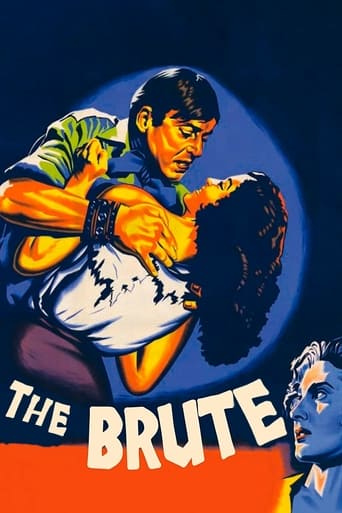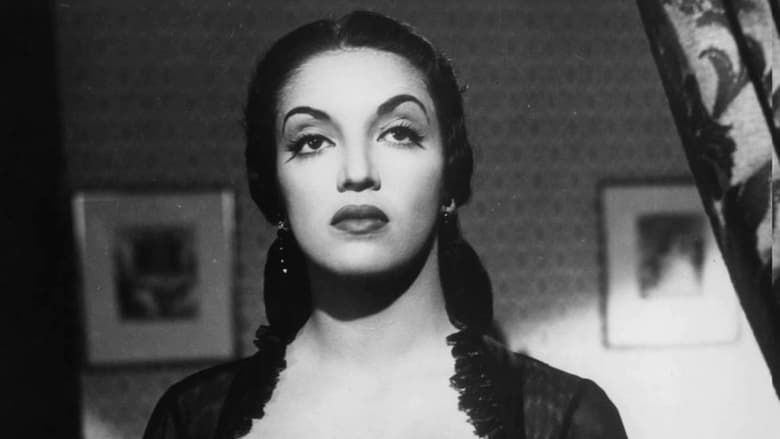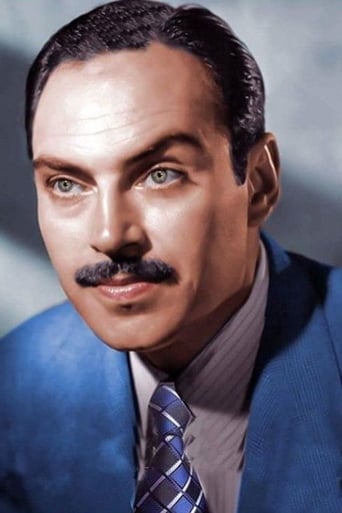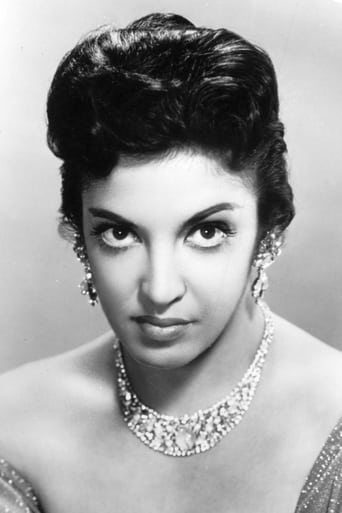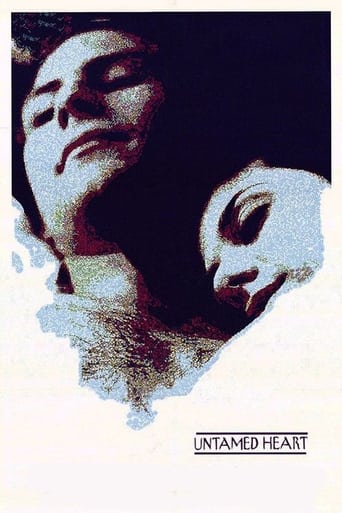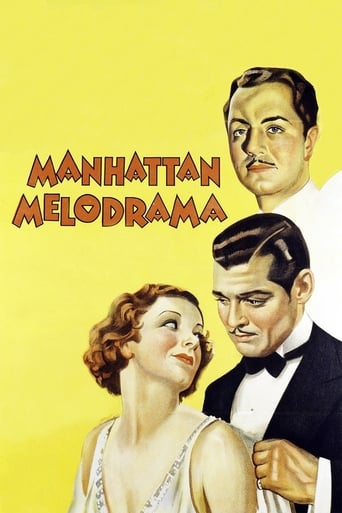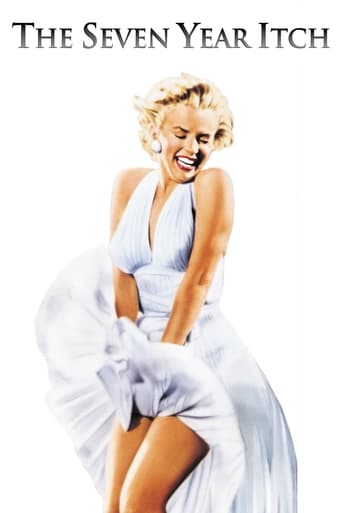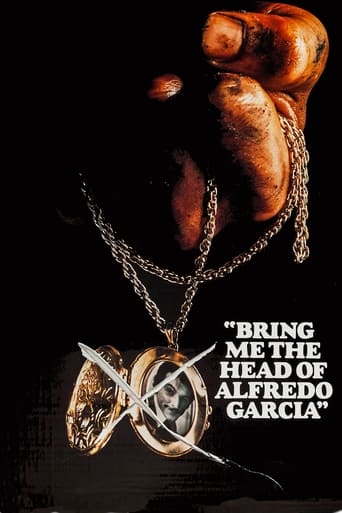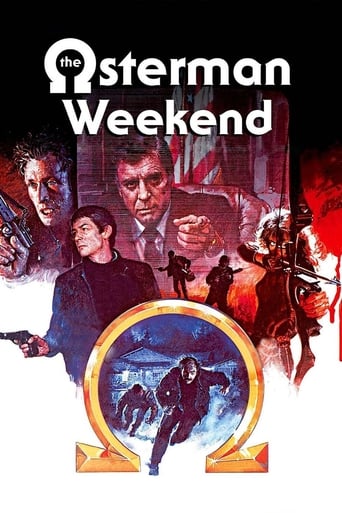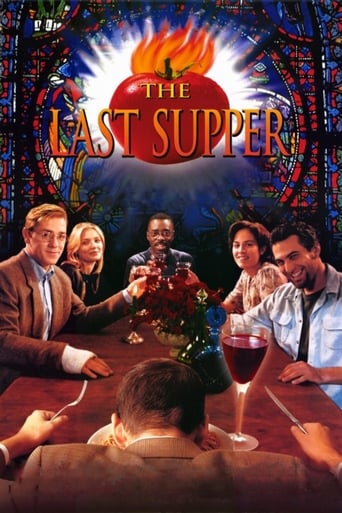The Brute (1953)
A tough young man, who helps to kick poor people out of their houses, falls in love with a girl. She lives with her father in the building about to be demolished.
Watch Trailer
Cast


Similar titles
Reviews
It's no definitive masterpiece but it's damn close.
Pretty good movie overall. First half was nothing special but it got better as it went along.
The first must-see film of the year.
It’s not bad or unwatchable but despite the amplitude of the spectacle, the end result is underwhelming.
Although this is definitely a minor Bunuel – being pretty much a straightforward melodrama, with little of the expected subtext – it is still well-made and acted and undeniably entertaining; as opposed to most of his Mexican work, there have been two R1 DVD releases of the film from Cozumel (the first to be released and the one I immediately purchased) and, more recently, Facets. THE BRUTE also provided the director with a rare chance to work with popular Mexican actors who, like EL (1953)'s Arturo De Cordova soon after, already had established reputations in Hollywood – though it is safe to assume that Pedro Armendariz would never again be so rugged nor Katy Jurado so earthy as in their sole film for Luis Bunuel! As I said, the plot is simple: wealthy but ageing businessman Andres Soler wants to sell a property currently leased to numerous poor families; he presents them with an eviction notice but, through the instigation of a few headstrong tenants, they unanimously refuse to vacate the premises and almost assault their landlord for what they consider his inhumanity and greediness! Arriving home with his pride broken, he does not elicit sympathy from his much younger and determined wife (an altogether startling turn by Jurado, who walked off with a Silver Ariel award for Best Supporting Actress!) but she instantly suggests, metaphorically, that he simply get rid of the opposition and, to this end, Soler hires a brawny but slow-witted slaughterhouse worker nicknamed "Bruto" (Armendariz).The latter's first attempt at intimidation, even if he had even hardly touched the man, results in tragedy (due to the victim's weak physical condition); for this reason, Soler shelters him in his own house, where the boss' hilariously doddering and cantankerous, yet mischievous, father (played by 81-year old Paco Martinez) also resides; the elderly man's shtick – his uniquely doddering walk on the way to procure himself some candy behind his son's back, his constant muttering of the would-be swear word "Pugnales" and even licking tequila off of his daughter-in-law's little finger – is a source of much amusement throughout the film. Bruto's defection to the Soler household liberates him from the oppression in his own home which he shares with his live-in girlfriend and her family of 'leeches': a bed-ridden, perennially expiring but chain-smoking would-be-mother-in-law; her own lame brother who badmouths her at every turn; her ingrate and unemployed son who only visits to fleece the relief money, etc.! Before long, Jurado turns her attentions to Bruto – who is unable to resist her; in fact, the sexual tension the film displays in their clandestine encounters must have been an eye-opener for its time (certainly when compared with the Hollywoodian standard).Further plot complications arise when the residents try to teach Armendariz a lesson and, injured by a nail driven through his shoulder(!), he stumbles into the hovel where the daughter (called Meche, just like the milk-bathing girl in Bunuel's LOS OLVIDADOS [1950]) of his own earlier victim has been living; she unselfishly looks after him, and he finds himself falling for the girl (a young Rosita Arenas, later star of such classic Mexi-Horror titles as THE WITCH'S CURSE [1960] and THE CURSE OF THE CRYING WOMAN [1961]). This turn-of-events – which anticipates Marlon Brando's fate in Elia Kazan's Oscar-laden classic ON THE WATERFRONT (1954) – obviously jeopardizes Bruto's relationship with Jurado and, after she confronts the younger woman and Armendariz gives the boss' wife a piece of his mind in the only way he knows how, the rejected mistress informs her clueless husband that Bruto had raped her!All of which leads first to a tete-a'-tete between the landlord and his thug, which leaves the former with a broken back and his face smashed in (again, it was unusual to depict violence in such an unflinching manner back then) and, eventually, Bruto's own demise in a hail of bullets when he is cornered by the Police (led to him by Jurado herself); curiously enough, there are some who hold the view that THE BRUTE is Bunuel's retelling of the Frankenstein tale in a modernized socio-political key but, frankly, it did not strike me that way – after all, the creator did not intend his creature to do his evil bidding! Anyhow, Arenas had grown fond of Armendariz in spite of herself and she lies by his side as he expires but, tellingly, the film's last shot sticks with his other jilted lover – Jurado now left all alone and probably gone off her rocker Tennessee Williams-style as she glares defiantly at a rooster believing it is making fun of her!
Had Luis Bunuel ever made a bad movie? I've seen fourteen his films and every one of them is great, simply fantastic, starting with the most famous short film, 17 minutes long "Un chien andalou" (1929) and ending with his swan song, "That obscure object of desire" (1977). Bunuel made films in France, his native Spain, and in Mexico where he had to immigrate after Franco came to power in Spain. Each of his films is uniquely brilliant but all of them have in common his magic touch no matter what period of his life they belong."El Bruto" is no exception and it is a strong combination of a surreal melodrama and political film which could also be viewed as a modern retelling of the Frankenstein's story. Pedro "El Bruto" is a young tough slaughterhouse laborer who is exploited by a tyrannical landowner who may be his father and to whom he is very loyal. He is eager to help Don Andres to evict the poor tenants form their houses that belong to Don Andres. Pedro is a simple man who was not used to think a lot and analyze the motivations of the others but he will learn and his eyes will open. Pedro will become a not so obscure object of desire of two women, passionate and strong-willed Paloma, the young wife of Don Andres and the kind and gentle Meche, whose father Pedro accidentally kills while doing the job for Don Andres. As is supposed to be in the melodrama, one of the women is scorned and hell hath no fury as she does and the inevitable ending is coming. The very last shot of the movie with its enigmatic irony is pure Bunuel - only he would finish the film the way he did.
"El Bruto" might be Andrés' s son and like in Frankenstein.....When a director is as strong as Bunuel (whose filmography is huge and brilliant),some of his works may seem lacklustre by association. But further acquaintance shows this: all -except the obsession with religion- the Master's permanent features are here: the old man who eats candies is akin to the grandpa who rapes his granddaughter in "Cela S'Appelle l'Aurore " ;the young girl with the madonna face ,Meche,and the bitch ,the sensual beautiful Paloma (Katy Jurado:you should see her cut her flowers )we've already met them( In " Los OLvidados",Pedro's bitchy mother became a madonna in his dreams) and we would meet them again all along Bunuel's canon(in "La Mort En CE Jardin" :Michèle Girardon and Simone Signoret);in "Cet Obscur Objet du Desir" they would become one.The bourgeoisie's selfishness is also present.Perhaps not among Bunuel's essential,but none of his fans would like to miss it.
El Bruto is, quite simply, a melodrama in the literal sense; romantic music cues the romantic scenes, action music cues the violent scenes, etc. Moreover, the characters are introduced as stock archetypes and are mostly undeveloped; Don Andres the cruel capitalist, Meche the unassuming maid, Paloma the adulterous wife (Katy Juardo, in a performance that, looking back, boarders on misogynist in its hypocritical implications of female sexual aggression), and of course, Pedro, the beast turned from his wicked ways because of a good (looking?) woman.The film follows an uninspired tale of eviction of tenants by Don Andres, and El Brudo - Pedro - is hired to rough em up, and stop those "revolutionaries" from stirring up trouble. Perhaps Bunuel was making a commentary about Franco's Spain with such references, but any analogy is lost in the mire of an all-too-predictable plot. The details are not really worth mentioning, on account of their banality.What, then, saves this film from registering a 3 or worse on my scale? Well, while the film seems at first aggravatingly conventional, there are enough subversive digressions from the genre (beast-mollified-by-virtuous-beauty) that makes you rethink the point of the entire film. First of all, there's the matter of perspective - we are all used to seeing Film Noir heavies take the protagonist/troublemaker aside with a little "message" from the boss. This time, though, we are asked to sympathize with the heavy's side. Sure, it's been done elsewhere (The Godfather trilogy comes to mind), but not with, as in Armendariz's performance as Pedro, intensity reminiscent of Marlon Brando as Tennessee Williams' Stanley Kowalski.Otherwise, a lingering question of motive remains. It is not a simple, beast-man changes his ways and saves the day story, because Pedro's motivation for change seems to be attraction to Meche, not benevolence towards the lowly tenants. Does that make him a selfish, animal man? Or does it actually reveal his humanity, above that of the loveless Don Andres and Paloma? In the end, Pedro doesn't change his nature, but a certain part of his nature - that of attraction - gets the better of him.The final image of the film is also deliciously enigmatic: Paloma gazing - fearfully? anxiously? - at a dark hen that defies interpretation. Perhaps I missed a plot detail about that hen - was it the same one that was a gift from Pedro to Meche? then perhaps she is jealous - but more likely, it is a statement of rebellion against Paloma's otherwise static character type. She seems to be have been involved with some potent set pieces earlier (the flowers to be cut, representing tenants; the meat to be cut, representing the subtlety of seduction).We are not meant to leave fully knowing or understanding either Paloma or Pedro (sadly, Meche remains 1-dimensional), and enough scenes are introduced that challenge our preconceptions about type characters that makes the story surprisingly compelling.

